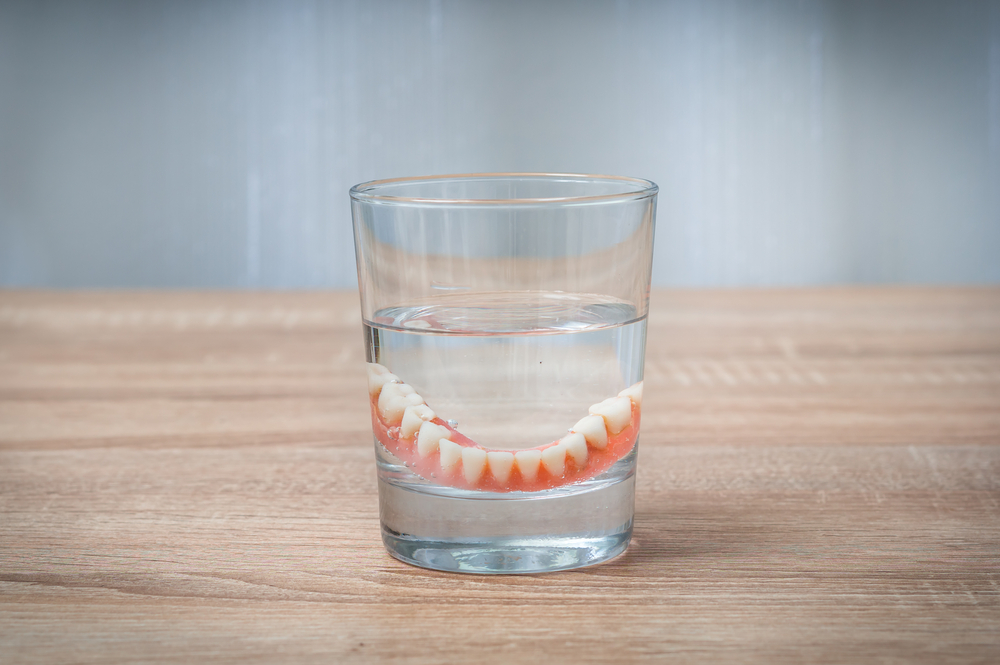Dentures, a crucial component in prosthodontics, serve as artificial teeth specifically designed to replace missing teeth and restore oral function and aesthetics. Tooth loss can significantly impact one’s oral health and overall well-being. Edentulism, or the condition of being toothless, can lead to difficulties in eating, speaking, and even self-confidence. Dental dentures play a vital role in addressing these challenges by providing a functional and natural-looking solution for tooth replacement.
Prosthodontics, the branch of dentistry focused on dental restoration and replacement, specialises in creating custom-made dentures tailored to each individual’s needs. These artificial teeth not only aid in restoring proper chewing and speaking abilities but also contribute to maintaining facial structure and preventing further oral health issues associated with missing teeth.
Proper care of dental dentures is essential to ensure their longevity and effectiveness. Regular cleaning, maintenance, and periodic check-ups with a prosthodontist are crucial aspects of dental denture care to preserve oral health and maximise the functionality of these artificial teeth.
The Basics of Dentures
What materials are commonly used to create dentures, and how do they contribute to the overall appearance and functionality of these prosthetic teeth?
Dentures are typically made from either acrylic or porcelain, each offering unique benefits. Acrylic dentures are more affordable and easier to adjust, making them a popular choice for many.
Conversely, porcelain dentures are known for their durability and natural appearance, and they more closely resemble real teeth.
The denture base, which holds the prosthetic teeth, is usually made from a gum-coloured acrylic material to blend seamlessly with the natural gum line. This base, also known as the denture plate, provides stability and comfort while wearing the dentures.
Denture design is crucial in ensuring a comfortable fit and natural look. Using high-quality materials and skilled craftsmanship, dentures can enhance the appearance and functionality of a person’s smile, promoting better oral health and overall well-being.
The Functionality of Dentures
Dentures are meticulously crafted using cutting-edge materials and precise design to restore essential oral functions, including mastication for efficient chewing and clear pronunciation during speech. Regarding chewing efficiency, dentures are crucial in breaking down food into smaller, digestible pieces. The bite force exerted while eating with dentures is carefully considered to ensure proper functionality and comfort. Additionally, speaking with dentures can initially pose a challenge as the mouth adjusts to the new prosthetic, but with practice, individuals can regain clear pronunciation.
Furthermore, denture functionality extends beyond basic tasks to impact overall oral functionality. Properly fitted dentures support the jaw muscles, aiding in maintaining facial appearance and preventing potential issues that may arise from missing teeth. By restoring the ability to chew effectively and speak clearly, dentures enhance the quality of life and contribute to the overall well-being of individuals seeking to regain the function of natural teeth.
Getting Fitted for Dentures
To obtain dentures, individuals typically begin with a dental consultation to assess their oral health and discuss the potential need for prosthetic restoration. During the dental consultation, the dentist will conduct a thorough oral examination to evaluate the condition of the teeth, gums, and jawbones. Following this assessment, the dentist may take dental impressions or moulds of the patient’s mouth. These impressions are crucial for creating custom dentures that fit the patient’s unique oral structure perfectly.
Once the dental impressions are taken, the denture fitting process begins. Using these impressions as a guide, the dentist will work with specialised materials to craft the dentures. After the initial fabrication, the patient will return for a fitting session. During this appointment, the dentist will ensure that the dentures fit comfortably and make any necessary adjustments for optimal function. This iterative process may involve multiple fittings until the dentures fit perfectly, allowing the individual to regain the ability to eat, speak, and smile with confidence.
Living with Dentures
Transitioning into life with dentures requires adapting to new habits, daily routines, and dietary choices. When it comes to daily life with dentures, maintenance is key to ensuring their longevity and oral health.
Proper denture care involves cleaning them regularly with a soft brush and using specialised cleansers to prevent bacterial buildup. Additionally, lifestyle adaptation is necessary to accommodate speech changes that may occur initially. Speech adaptation may take some time, but practising speaking and reading aloud can help improve clarity.
Moreover, adjusting to dentures involves reconsidering your eating habits and food choices. Initially, opt for softer foods and cut items into smaller pieces to make chewing easier. Gradually reintroduce various foods into your diet as you become more comfortable with your dentures.
Key Takeaways
For comprehensive denture care and expert guidance on restoring your smile and oral health, visit Dr. Pierre Dentistry in Edgecliff, NSW, 2027.
Our skilled team is dedicated to providing precise fittings and ongoing maintenance to ensure your dentures offer optimal support and comfort. Don’t wait any longer to enhance your quality of life with the help of our professional services.
Contact Dr Pierre Dentistry today to schedule a consultation and take the first step towards a confident smile and improved well-being.




